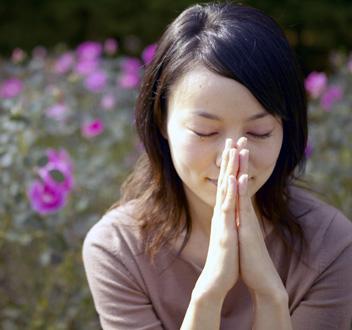 Such was the request of the Women's group a couple months ago. The leadership of this group of women that meet twice a month asked me to come lead a couple of sessions about what it means to pray. Some of them had expressed that they weren't sure how they prayed or how it was that they invited God into their daily lives.
Such was the request of the Women's group a couple months ago. The leadership of this group of women that meet twice a month asked me to come lead a couple of sessions about what it means to pray. Some of them had expressed that they weren't sure how they prayed or how it was that they invited God into their daily lives.
These are the best kind of requests to get as a pastor. They make you happy about your job. You know that people care about the growth in their own spiritual lives and are seeking out resources to make this growth possible.
Not that I am an end all expert on prayer, but I agreed to lead the session because I wanted to honor the desire of this group to become more comfortable with the topic of prayer.
I used one of my favorite books: The Quotidian Mysteries: Laundry, Liturgy and "Women's Work" by Kathleen Norris as resource to begin the discussion.
I think often times we as people of faith, people who want to connect with God make prayer harder than it is. There is a lot of pressure associated with the content of public prayer. We often stray from prayer because we think that God has strayed from us.
Yet, the encouragement that I sought to share with the group was that prayer can be a part of the whole of our lives- the mindfulness which we carry out our most daily of tasks. Prayer is not as hard as it seems. And, in prayer, we can be brought back to our center when we begin to lose our way.
Norris writes this: "Saint Tersea of Lisisux said in her autobiography, Story of a Soul that Christ was most present to her not “during my hours of prayer . . . but rather in the midst of my DAILY occupations.”
It is in this spirit of mindfulness that we find prayer to become a part of all that we are, not just something we have to sit down and require ourselves to do for certain period of time. Norris like to talk about how the routines that many of us consider "boring" are in fact the very things that can bring us closer to God.
Kathleen Norris writes: “Shampooing the hair, washing the body, brushing the teeth, drinking enough water, taking a daily vitamin, going for a walk, as simple as they seem are acts of self respect . . .. Care asserts that as difficult and painful as life can be, it is worth something to be in the present, alive, doing one’s daily little bit.”
So that in the ways we care for our bodies, attend in kindness to our schedules, and make time for daily tasks like laundry, dishes and exercise we are praying. We are saying to God: "I honor the body and the life that you've given me. And, I will take time not to be so busy that I don't recognize where you are seeking to be known to me in my daily activities."
Session two on prayer will include more prescribed ideas about prayer from scripture, but for this week, the idea I wanted to convey about prayer is that the practice is closer and more accessible to us than we might think. It is something that we can all do.